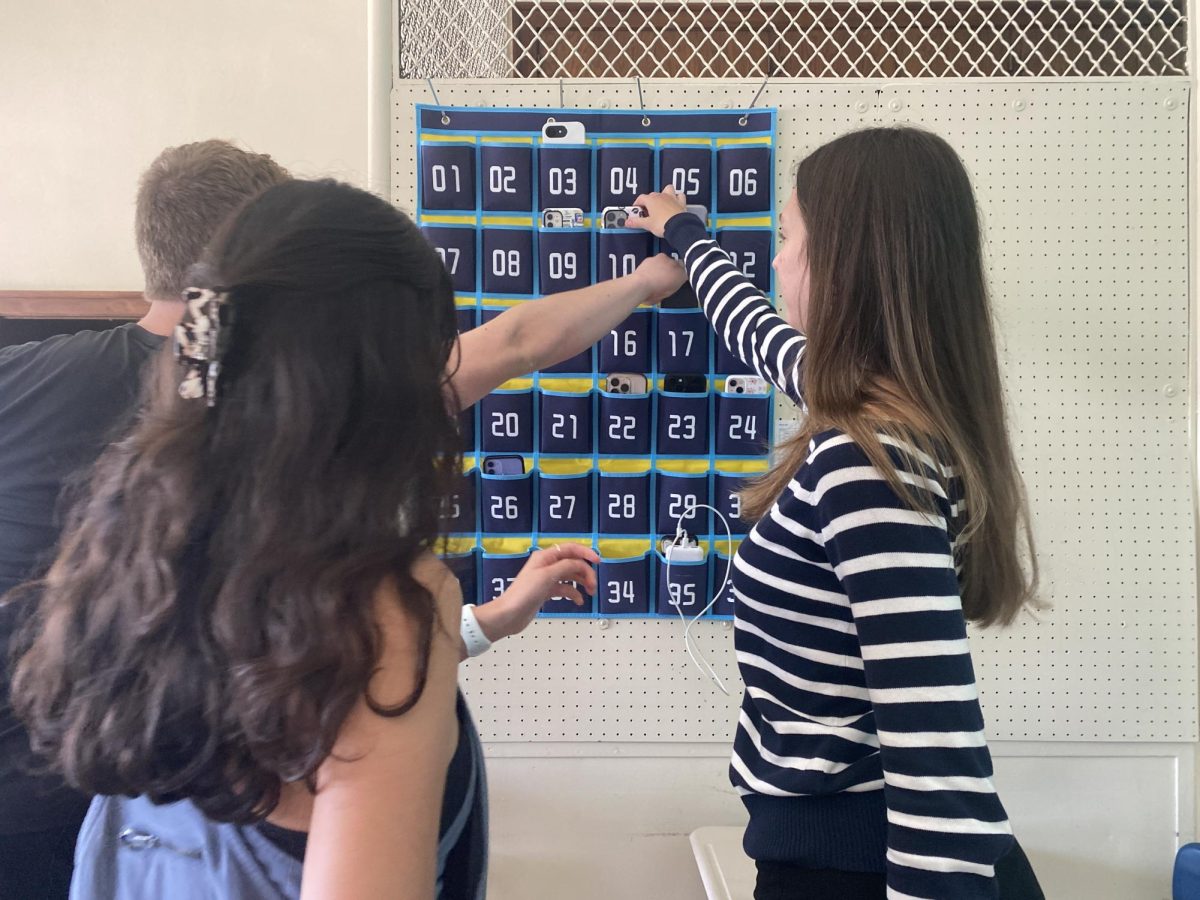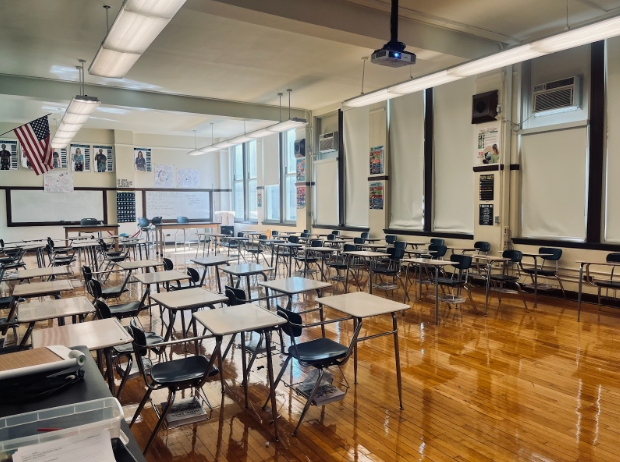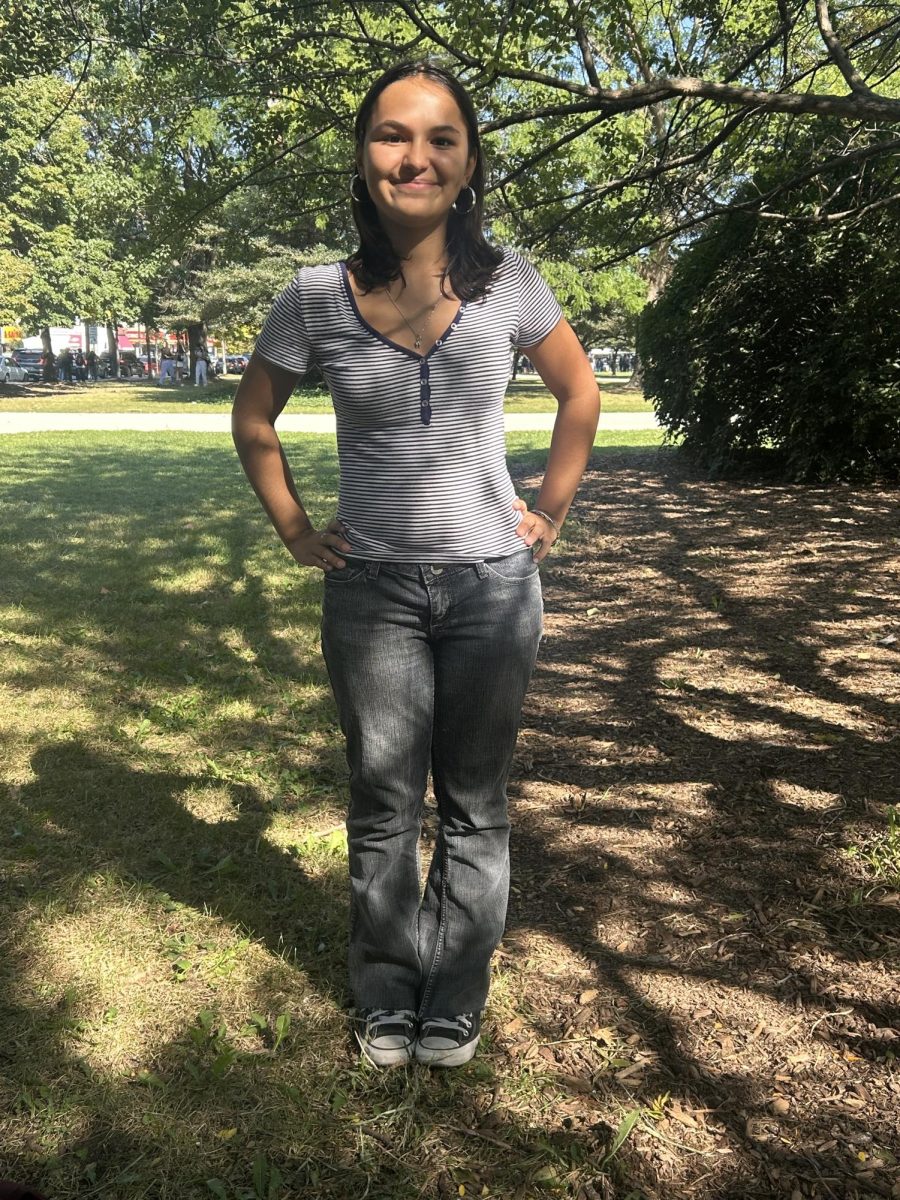As the school year kicks off at Lane Tech, the administration has purchased phone pouches for 150 teachers who requested them through a survey that was conducted last year.
Assistant Principal Dr. Hanly estimated that around 75% of staff had indicated in the survey they wanted more support from administration regarding the cell phone policy.
“I think it wasn’t so much us [administration] changing that as it was teachers getting frustrated with kids and seeing the success of them [phone pouches] from other teachers,” Hanly said. “They would then want to use it for themselves. So we haven’t done anything differently other than just helping reinforce what the teachers are asking us to tell the kids, which is: whatever the rule is that your teacher has in their classroom, that’s the rule you follow.”
However, there were also teachers who didn’t initially choose to use the pouches, but who eventually found phone pouches to be useful in the classroom. Social Studies teacher Irving Zamudio said, “Initially, I wasn’t [on board with using pouches] because I like the idea of treating my older students like adults, but I think it’s helped.”
While he didn’t use the pouches in previous years, he said he finds that it has boosted overall productivity and student engagement throughout the classroom. “Seeing how it has helped students to concentrate on their work and not their phone, it has helped,” Zamudio said. “Even if I didn’t have that big of a problem before, it does. It has helped those 2-3 students who had an issue with that before.”
Hanly also explained that the phone pouches are not required given how each teacher has their own way of conducting their classrooms.
“I know that in some of the art classes, they allow students to listen to music while they create their art. So, that’s why I can’t sit there and say, ‘Well, I’m sorry the blind statement is no,’ which is what some schools do,” Hanly said. “We kind of try to balance this with a little bit of grace to the kids, but understanding that sometimes there’s no place for it in the classroom and you have to respect the teacher’s rules.”
Junior Vivvian Lopez-Mercado has even noticed that every one of her classes, except one, has started to use phone pouches regularly. She also says that she uses her phone to listen to music while she works. While Lopez-Mercado acknowledges the potential benefits of students using phone pouches, she also feels that most students still complete their assignments regardless of using the pouches or not.
“There’s definitely a benefit to not having your phone academically, but socially, I feel like it’s a big disadvantage,” Lopez-Mercado said. “Just having your phone on you gives you a peace of mind to know if something happens, you can respond to it, but not having it takes away the urge of feeling like you need to use it during the chance you get.”
Both Hanly and Social Studies teacher Melissa Smith have also expressed concern for students’ overall in-person peer connection. They have observed that while students don’t have their phones, they tend to engage more with their peers, fostering more meaningful conversations.
“I have seen again with the observations that when the phones aren’t there, the conversation between kids is much more in tune to one another because they’re not distracted or they’re not looking at their phone while the other three [students] are talking,” Hanly said.
Smith also commented on this while reminiscing on how her previous classes had been incredibly different to the current digital generation.
“I’ve noticed there is a huge disconnect between when I first started here in 2001. We used to have a million kids come after school, hanging out in classrooms, playing games, card games, and board games, or they would just come in and chat,” she said. “Nowadays, students in general lack the ability to talk to adults, and I worry about that.”
While she doesn’t use the phone pouches herself, Smith still expresses her gratitude for the administration’s support. “I do appreciate that they’re acknowledging that cell phones are an issue, and are trying to help us. I’m very appreciative,” Smith said.





